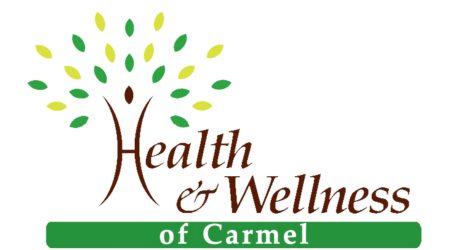The question of whether cancer patients should avoid sugar sparks a lot of confusion and concern. It’s common to see oversimplified claims on social media or within trendy diet circles that point to sugar as a direct fuel source for cancer.
However, the real connection between sugar and cancer is far more complex. Understanding it requires addressing myths, analyzing scientific evidence, and offering practical solutions.
At Health & Wellness of Carmel, we believe in empowering patients with personalized care, expert guidance, and evidence-based nutrition plans for optimal wellness. Our goal here is to explore the facts behind sugar and its role in cancer care, helping you make informed decisions about your diet.
Understanding the Sugar-Cancer Connection
Sugar, or glucose, is a key energy source for all cells in the body, including cancer cells. However, the idea that sugar uniquely "feeds" cancer is a misconception. Rapidly dividing cells, whether they’re healthy or cancerous, need glucose to function.
What this means is that sugar doesn’t specifically target cancer cells alone. This misunderstanding partly stems from a concept known as the Warburg effect, which describes how cancer cells use glucose differently to support rapid growth.
While this has raised questions about sugar's role in cancer, it’s important to remember that your body tightly regulates blood sugar levels, and eliminating sugar altogether won’t "starve" cancer.
The Role of Insulin and Inflammation
Where sugar does play a role is in its potential contribution to insulin resistance and chronic inflammation. Diets high in added sugars can lead to spikes in insulin, which over time may create an environment that supports cancer progression.
Additionally, chronic inflammation, often linked to unhealthy eating patterns, can influence the body's ability to fight cancer effectively.
It’s worth noting, however, that these effects stem from excessive sugar intake and poor dietary quality—not from moderate consumption of natural sugars found in whole foods like fruits or dairy.
What Research Really Says About Sugar and Cancer
Observational vs. Clinical Data
When interpreting studies on sugar and cancer, it’s critical to differentiate between correlation and causation. Several observational studies associate high sugar diets with an increased risk of certain cancers, such as breast or colon cancer.
However, these studies often don’t prove that sugar directly causes cancer. Instead, they reflect the broader impact of poor dietary habits, including low nutrient intake, obesity, and inactivity.
The Importance of Overall Dietary Patterns
Science increasingly highlights the role of dietary patterns, rather than single nutrients like sugar, in long-term health.
Diets rich in ultra-processed, high-sugar foods not only lack essential vitamins and minerals but can also harm the body’s immune and metabolic systems. However, this is less about sugar itself and more about the quality of your overall food choices.
Nutrition During Cancer Treatment: Should Sugar Be Avoided?
When Cutting Sugar Can Help
For some individuals, reducing sugar consumption can be beneficial. If you’re dealing with diabetes, obesity, or insulin resistance, limiting added sugars may help regulate blood sugar levels and improve overall health during cancer care.
Working with a medical team, such as the specialists at Health & Wellness of Carmel, ensures any changes to your diet are tailored to your unique needs.
When Sugar Shouldn’t Be Demonized
For others, eliminating sugar may not be the best approach. Cancer treatments such as chemotherapy can lead to appetite loss, nausea, or weight loss.
In such cases, carbohydrates, including naturally occurring sugars, play an important role in maintaining energy and preventing muscle breakdown. The key lies in using these foods wisely and as part of a balanced diet.
Real-Life Recommendations: How to Eat Smarter, Not Stricter
Focus on Whole Foods and Balanced Nutrition
Instead of fearing sugar, aim for a nutrient-rich diet that includes:
-
Fresh fruits and vegetables
-
Whole grains like quinoa or oats
-
Lean proteins such as chicken, fish, legumes, and tofu
-
Healthy fats from sources like nuts, seeds, and avocados
Natural sugars found in fruits and dairy come with essential nutrients like fiber, vitamins, and minerals that benefit overall health.
Be Mindful, Not Fearful
Moderation is key. While cutting back on added sugars found in sodas, candies, and baked goods is wise, there's no need to eliminate sugar entirely.
Overly restrictive diets can cause unnecessary stress and detract from the enjoyment of food, both of which play a role in your recovery and resilience.
A Partner in Your Healing Journey: Health & Wellness of Carmel
At Health & Wellness of Carmel, we take a holistic, patient-focused approach to cancer care. Our services include functional nutrition counseling, detoxification support, and wellness coaching tailored to your needs.
Whether you’re undergoing treatment or striving for long-term recovery, our team is here to guide you every step of the way.
Eating well during cancer doesn’t have to mean giving up the foods you love. With our individualized plans, we help you focus on balance, not deprivation, to support healing and overall wellness.
Conclusion: Stop Fearing Sugar, Start Understanding It
The bottom line? Sugar alone doesn’t "feed" cancer. The best approach to nutrition during cancer is maintaining a balanced, nutrient-dense diet while managing any underlying health conditions that sugar might influence.
By understanding the facts and working with a trusted healthcare team, you can make decisions that enhance both your treatment and quality of life.
If you’re ready to take control of your nutrition and wellness, trust the team at Health & Wellness of Carmel. Book an appointment for guidance that’s as compassionate as it is expert. Together, we’ll help you heal and thrive.

